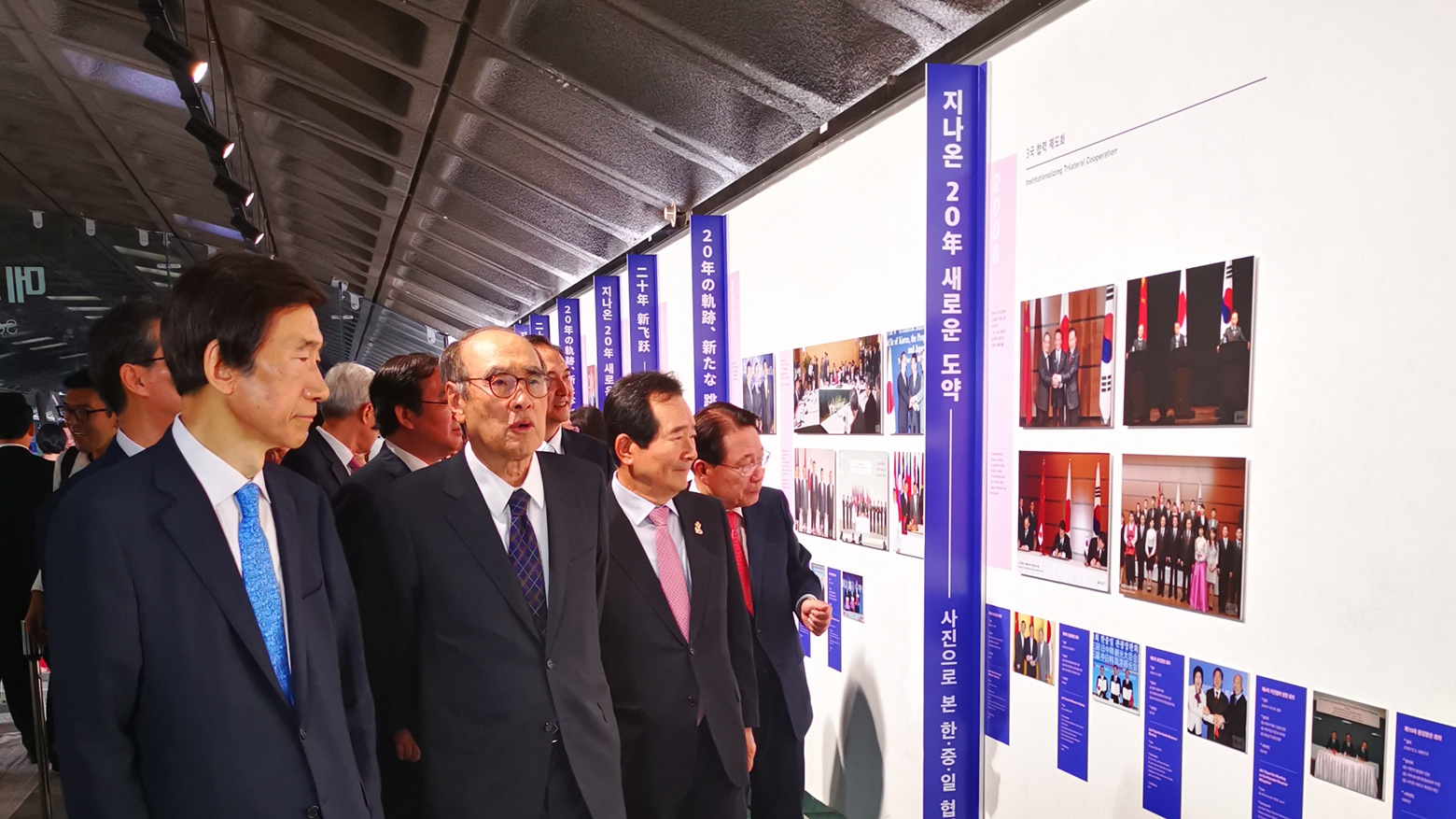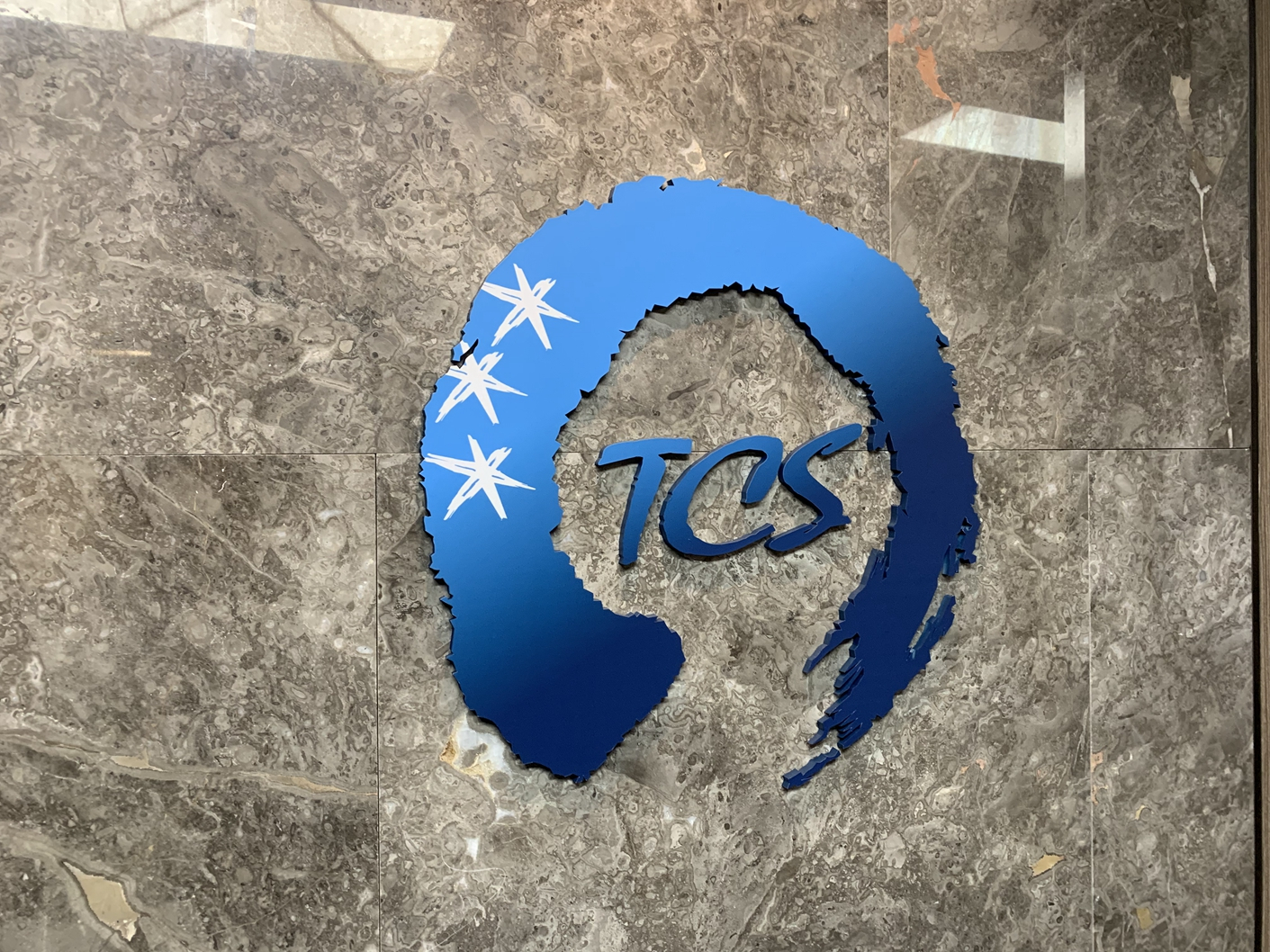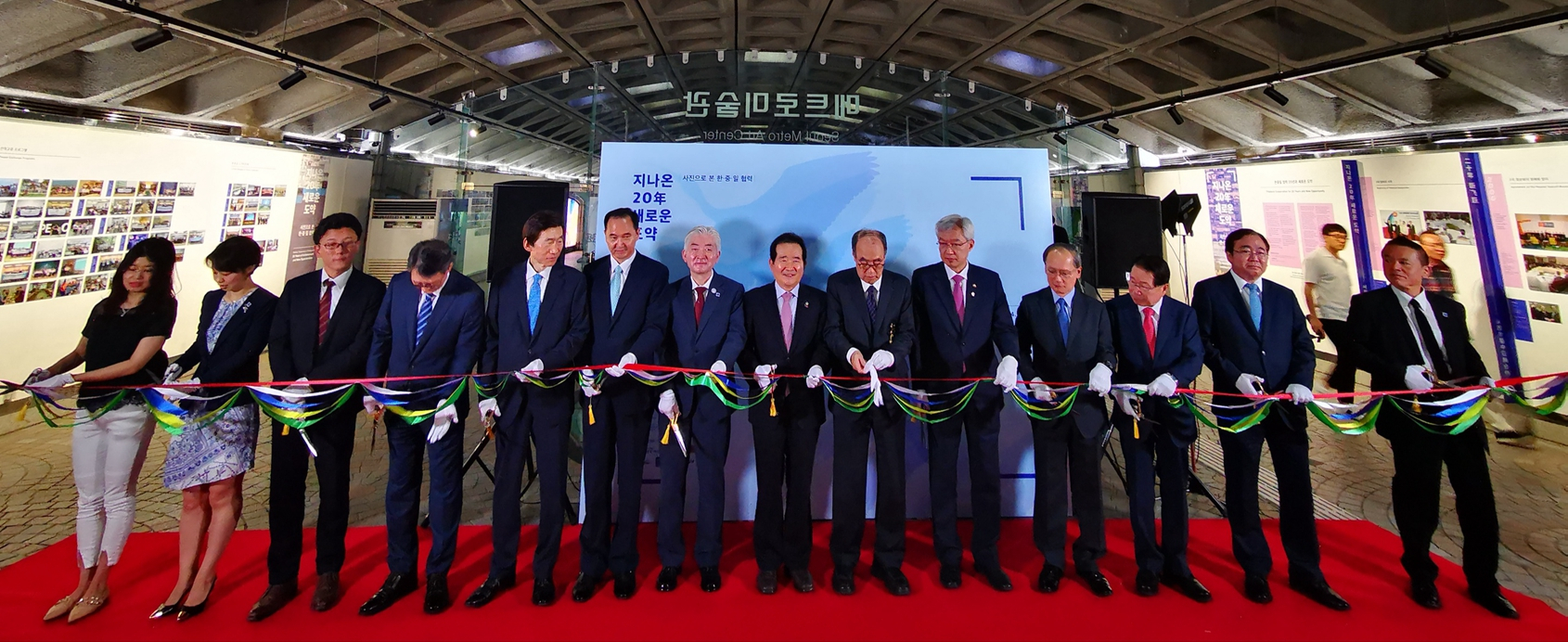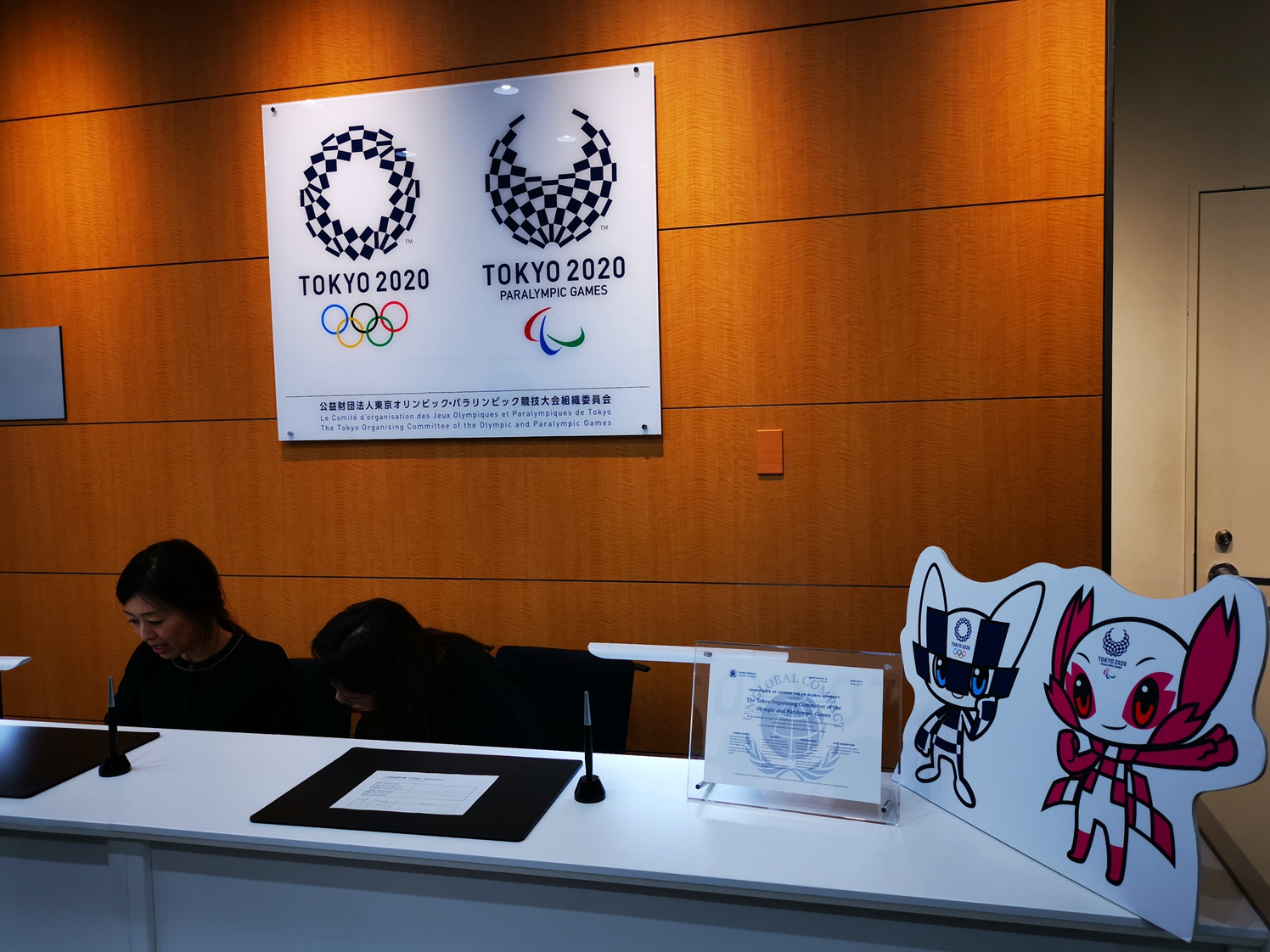

Photo exhibition to celebrate the 20th anniversary of the launch of China-Japan-South Korea trilateral cooperation in Seoul, South Korea. /CGTN Photo
This year marks the 20th anniversary of the trilateral cooperation between China, Japan and South Korea, and it is an occasion for journalists — as builders of bridges between countries and seekers of facts — to have an in-dept understanding of what binds these neighboring countries.
The three nations together represent 20.9 percent of global population, 23.1 percent of global GDP, 18.5 percent of global trade volume and 59.7 percent of global patent application, according to Trilateral Cooperation Secretariat (TCS) data.
To arm reporters with the right tools to better cover the exchanges among the three countries, 13 journalists were invited on a 10-day trip to Shenzhen, in south China's Guangdong Province, Tokyo and Seoul earlier this month.
The event, themed "Culturally Diverse and Sustainable cities", is part of the Trilateral Journalist Exchange Program (TJEP) under the TCS.

The Trilateral Cooperation Secretariat (TCS) headquarters in Seoul, South Korea. /CGTN Photo
Paying visits to famous companies and organizations like producer of electric vehicles BYD in Shenzhen and the Tokyo Organizing Committee of the Olympic and Paralympic Games, we found the answer to what the essence of sustainability is: nurturing a long-term vision and nourishing technological innovation to create an eco-friendly living environment.
Traveling across Shenzhen, a young metropolis with millions of residents and a GDP larger than that of nearby Hong Kong, numerous electric buses, coaches and cabs on the road are made by BYD. Is that kind of lifestyle with low carbon footprint for sustainability purposes?
At the Pingshan Industrial Park in Shenzhen, where BYD is headquartered, we got the answer from Ding Haimiao, deputy general manager of Asia-Pacific Auto Sales Division of BYD.
In recent years, BYD's zero-emission energy solutions became key to winning the bid to replace diesel-powered buses and taxis in Shenzhen, a major step for the city to build a sustainable living environment. More importantly, BYD is in close cooperation with companies from South Korea and Japan in areas like research and development, supply chains and new technology innovation.

A ribbon cutting ceremony for a photo exhibition on the 20th anniversary of the launch of China-Japan-South China trilateral cooperation. /CGTN Photo
Meanwhile, the Tokyo Organizing Committee of the Olympic and Paralympic Games has set "Games for next generation" as an integral part of its sustainability vision.
Kentaro Kato, project director of Media Relations, said that a sustainability project called "Operation BATON" launched in October 2017 aims at turning the sustainability vision into a reality.
The Village Plaza will be one of the main facilities in the athletes village. After the Games, the Plaza will be dismantled and the timber will be returned to the local municipalities for them to re-use. Moreover, the medals for Tokyo 2020 Olympic and Paralympic Games will use gold, silver and cooper extracted and recycled from used electronics like smartphones and laptops in a first in the history of the Games.

The Tokyo Organising Committee of the Olympic and Paralympic Games in Tokyo, Japan. /CGTN Photo
Sustainability can also be seen in the trilateral cooperation among the countries.
In Seoul, journalists attended a special photo exhibition and reception held by the TCS to celebrate the 20th anniversary of the launch of China-Japan-South Korea trilateral cooperation.
Reviewing pictures of past two decades, it is easy for young generations to realize that the intensive cooperation among these Northeast Asian nations has evolved into an extensive cooperation mechanism. And with more in-depth experiences, young journalists under the TJEP could tell more stories that could usher in new prospects for trilateral understanding.

Copyright © 2018 CGTN. Beijing ICP prepared NO.16065310-3
Copyright © 2018 CGTN. Beijing ICP prepared NO.16065310-3